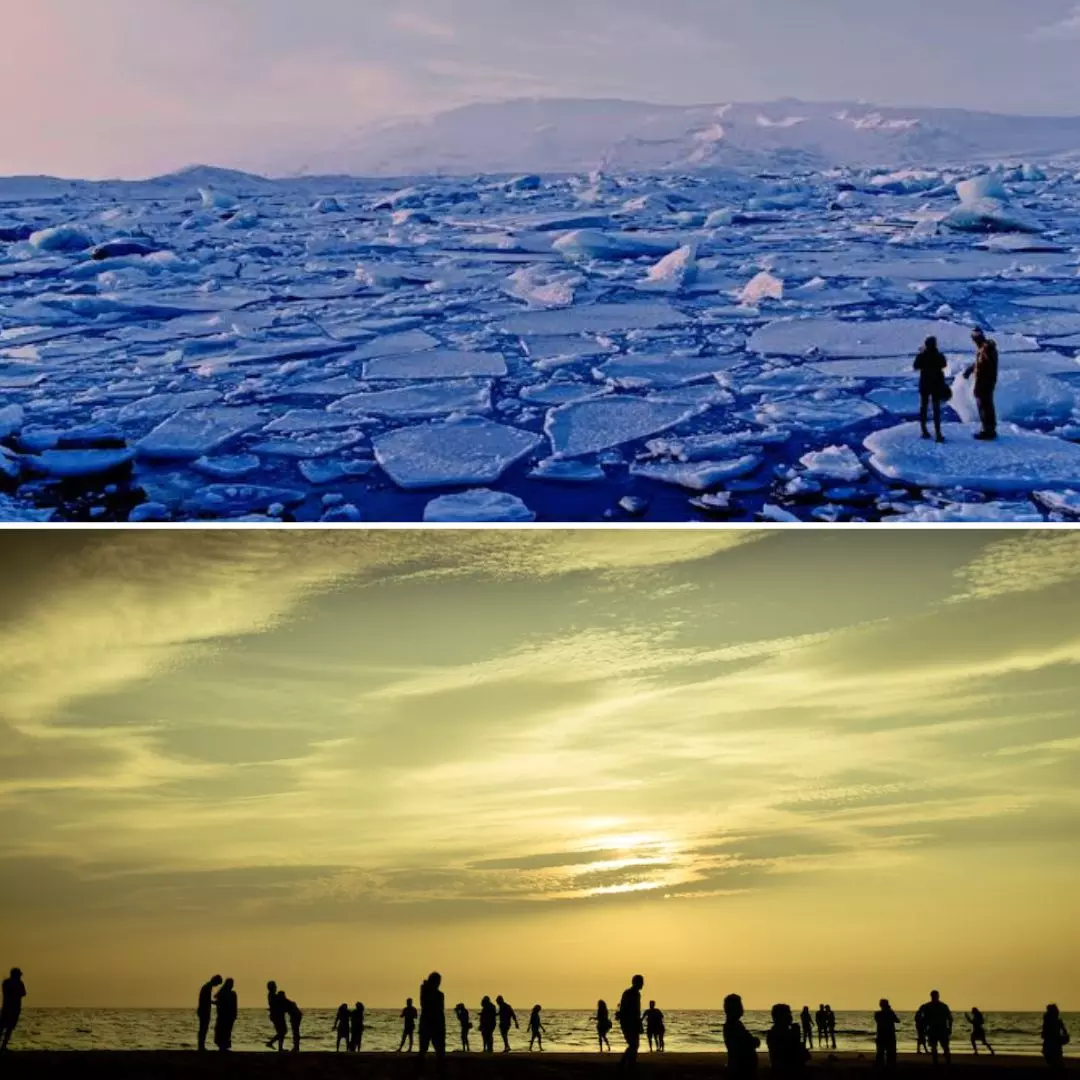The ice covering the Antarctic Ocean area was recorded at its lowest in the month of January, exposing Earth to even more planet-warming heat. The Antarctic ice is known for deflecting some amount of sun rays and keeping the temperatures liveable. With this ice buffer zone melting with human activity, the protective layer further depletes and raises the temperature to the point of heat waves.
Ice Sea Replaced With Unfrozen Dark Sea
The report regarding the Antarctic Ocean’s ice level was released by scientists on February 8, and it suggested that the ice cover was at its lowest ever recorded by January. Although it’s not predicted that the massive ice sheets will melt off completely, even small-scale melting could raise the global sea levels at threatening rates and cause flooding around the world.
The Antarctic in itself supports masses of the world’s sea life, including at least 15 species of whale and dolphin and five species of penguins. Along with these species, the glacial lakes have been threatening countries across Europe, Asia, and South America, with their communities experiencing the first-hand impact of the ice melting off.
As the white sea ice gets replaced by dark, unfrozen sea, the water would absorb the sun’s heat instead of bouncing up 90 per cent of the energy back into space. 2023 saw the third warmest January recorded in Europe, with the temperatures on New Year’s Day has reached an all-time high in several parts of the continent, according to the European Union’s Copernicus Climate monitor (C3S).
Call For Imperative Measures
Globally, 2022 was recorded among the warmest years on record despite the cooling influence of the natural La Nina weather pattern. Europe clocked some of the deadliest heat waves that fuelled droughts and wildfires on the continent. Other regions, such as the eastern United States, Canada, and Mexico, also experienced extreme heat.
A report by The Hindu quoted C3S deputy Samantha Burgess saying that this temperature rise continues to be a “tangible indication of the effects of a changing climate for many regions and can be understood as an additional warning of future extreme events.” The Antarctic sea ice extent was 31 per cent below average and way below the previous record for January.
The worrying data has nudged several climate bodies to request global and regional power holders to take swift action to mitigate the rise in global temperatures. The extent to which the stakeholders would understand its need continues to be a huge question.
Also Read: Filtering Information Bubble: Know How Social Media Become Enablers Of Climate Misinformation
https://thelogicalindian.com/h-upload/2023/02/10/500x300_229643-untitled-design-24.webp
Environment
2023-02-10 12:23:48.0
‘White Ice To Dark Lakes’: Antarctic Sheets Melting Hit Record Low In January, Says Climate Monitor












